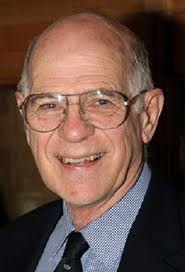 John the Baptist’s preaching caused a revival, of sorts. “The whole Judaean countryside and all the people of Jerusalem went out to him.” (Mark 1:5)
John the Baptist’s preaching caused a revival, of sorts. “The whole Judaean countryside and all the people of Jerusalem went out to him.” (Mark 1:5)
This explosion of popularity did not throw him off course. He did not try to maintain his momentum or his platform. He stayed focused on the Message-giver, and his message was one of utter simplicity: “There is one greater than I. He will baptise you with the Holy Spirit.”
That simple promise of John still speaks to us today, whose experience of the Spirit in our daily lives resembles the occasional sip of champagne rather the wisdom and peace that comes from a steady abiding.
John’s message is one of hope: There is one more powerful than I who will baptise me with the Holy Spirit.
Ever now and then, Christians traditionally take stock of their lives and plan to revise them.
And the best way is with the power of the Spirit, with the power of Jesus, not with the power of our weak and fickle wills.
Let’s take a peek at some of my New Year’s goals, which, sigh, I have made before.
I would like to sleep early, and wake early.
I would like to be more active, and eat healthily, and be physically fit.
I would like to be tidier and more organised.
I would like to be more productive, and finish the book.
I think I omitted an important element in New Year’s resolution making. Instead of focusing on my struggles with discipline in early rising, healthy eating, exercise, housekeeping, and productivity, I should ask for Jesus to baptise me with the Holy Spirit as I tackle discipline, and then do things with the power of the Holy Spirit.
The baptism in the Holy Spirit comes in all the forms and shapes and variety of God himself. For me, it was a seismic, once in a life-time event. But what I rely on more is a daily filling.
A good father does not give the son who asks for bread and fish snakes and scorpions, Jesus says, so if we ask for the Holy Spirit, for help us, he will give it to us. (Luke 11: 11-12). Fresh bread, sufficient for the day. Tomorrow we will be hungry, and we must ask again.
I need to focus on Jesus, clothed in light, who breathed on the disciples, and said, “Receive the Holy Spirit,” and they were transformed. Ask for his interventions in my little struggles with disciplines, things you can’t go over, you can’t go under, you have to go through.
I’d rather read than declutter, but I should declutter significantly because I hope to move… There is one greater than I who will baptise me with the Holy Spirit, and with the power to do what I have to do. Come, Holy Spirit.
I’d rather eat comfort food, and surf the net rather than eat nutritious food and exercise. But there is power, there is one more powerful than I, who will baptise me with his Spirit again, and give me power to do what I must do. Come, Holy Spirit.
I want to stay up late, reading or surfing. It’s more appealing to sleep in, or read newspapers or magazines or Facebook than to finish my book. But there is power to do the right thing, there is one more powerful than I, who will baptise me with the Spirit, and who will help me. Come, Holy Spirit.
The place of helplessness is the ironic place of power, because we need to really, truly come to it to lean on the one stronger than ourselves.
* * *
Besides, all these tedious old resolutions are part of the idols of our age. Clean eating. 10,000 steps. The Life-Changing Magic of Tidying Up. Productivity.
But Jesus said nothing about them in his long great sermons on record, The Sermon on the Mount, and the Upper Room Discourse, or in any of his red letter teachings.
His focus was on the heart and spirit, the secret thoughts and emotions which no one else guesses at. The ways we disobey the teachings of Jesus in our innermost thoughts affect the course of our lives, and our peace and happiness far more than the habits of health and productivity.
If Jesus were to help us make New Year resolutions, he might say, “Stop judging!! Stay in your own lane. Turn that judging energy into improving the speed and elegance of your own race. Ask me for help in seeing yourself clearly, and when you have seen the beam in your own eyes, ask my help in removing it. When you want to judge others, ask me instead how you can follow me more closely.” He might say, “Do unto your family and friends what you would they do unto you.” He might say “Give,” or “Forgive. Cut the tangled fishing line of grievances, and see how much lighter you feel.”
And these things my wonderful Jesus might say are infinitely harder than New Year resolutions–Wake earlier. Eat healthily. Write more. Be tidier. And, as we follow where Jesus leads, step by step in the minutiae of our daily lives…(I love the German word for discipleship, Nachfolge, follow after)…these things fall into place.
* * *
So, will you and I then go to our graves as perfect human beings, without all these weaknesses and limps and thorns in our flesh that keep us humble?
I have two stories…
The powerful, brilliant, spiritually gifted, dynamic St. Paul, he who heard the voice of Jesus, who had a vision of heaven, was beset by an annoying “thorn in the flesh, a messenger of Satan to harass” him. His weakness could have been physical, emotional, or spiritual… He emphasises, however, that it came from Satan, not God. He is also clear that God could deliver him from it, in an instant, with “one touch from the King.”
Three times he asks God to free him from it, and Christ refuses to. “My grace is sufficient for you, for my power is made perfect in weakness,” Christ replies.
In his neediness, Paul will have to learn to rely on Christ’s power, which he would not need if he was self-powered, Paul-powered.
Paul concludes that he will delight in his weaknesses and hassles which will teach him to rest on Christ’s power, “for when I am weak, then I am strong.”
Sometimes God lets our struggles, difficulties and problems linger, so that we learn to trust him, discover his power, and learn to pray constantly out of necessity. Or merely to keep us humble. To keep us walking, instead of running, and collapsing in burnout.
* * *
And sometimes the weaknesses we lament are just part of our make-up, the way God created us, the shadow side, the necessary adjunct of our strengths. The awkwardness and extreme introversion Donald Miller, whose memoir A Million Miles in a Thousand Years I am listening to on audio in the car, mentions in Blue Like Jazz, his highly original memoir, perhaps provided the necessary space for his independent thinking on faith, love and “how then should we live.”
A last story. All his life, the great Christian and lexicographer Samuel Johnson struggled with sleeping early and waking early. He wanted to wake at 6 a.m., he would have been content to wake at 8 a.m; he often woke up at 2 p.m.
1738: He wrote, “Oh Lord, enable me to redeem the time which I have spent in sloth.”
1757: (19 years later) “Oh mighty God, enable me to shake off sloth and redeem the time misspent in idleness and sin by diligent application of the days yet remaining.”
1759: (2 years later) “Enable me to shake off idleness and sloth.”
1761: “I have resolved until I have resolved that I am afraid to resolve again.”
1764: “My indolence since my last reception of the sacrament has sunk into grossest sluggishness. My purpose is from this time to avoid idleness and to rise early.”
1764: (5 months later) He resolves to rise early, “not later than 6 if I can.”
1765: “I purpose to rise at 8 because, though, I shall not rise early it will be much earlier than I now rise for I often lie until 2.”
1769: “I am not yet in a state to form any resolutions. I purpose and hope to rise early in the morning, by 8, and by degrees, at 6.”
1775: “When I look back upon resolution of improvement and amendments which have, year after year, been made and broken, why do I yet try to resolve again? I try because reformation is necessary and despair is criminal.” He resolves again to rise at 8.
1781: (3 years before his death) “I will not despair, help me, help me, oh my God.” He resolves to rise at 8 or sooner to avoid idleness.”
Johnson spent much of the night in taverns where he enthralled an audience with his encyclopaedic knowledge, and his quick and ready wit. He was the best thing that ever happened to the young Scot James Boswell, who wrote one of classics of English Literature: The Life of Johnson. Boswell, an early fan-boy, surreptitiously recorded everything that Johnson said, and there was his book.
Sir, a woman’s preaching is like a dog’s walking on his hind legs. It is not done well; but you are surprised to find it done at all, Johnson quipped to Boswell. (Yeah, yeah, perhaps he should have gone to bed a bit earlier after all).
But genetically, Johnson was a night-owl. In trying to rise early, he was fighting against his chronotype, his biology. (I’ve read that night owls may be evolutionary descendants of the Paleolithic night watchmen who sat at edges of the encampment, protecting the people, telling stories and singing songs to keep themselves awake. Creative, intelligent, resourceful types). Many creative people are night owls, are messy, are sedentary, or fight addictions…. These things are often the shadow side of creativity.
Perhaps Samuel Johnson was just the way God meant him to be, a brilliant night owl who sparkled after the sun set. Perhaps his struggles with early rising taught him humility; taught him a gentleness with others who struggle; taught him his need for God. If not for his late hours as recorded by Boswell, his wit and wisdom and life experience would have long vanished, he would be one of the 99.99% of humanity who are long forgotten, and lie in unvisited graves.
Dr. Jack Miller (who catalogued Johnson’s failures I just quoted in his own great Sonship talks) mocks him, saying he struggled because he did not know the power of the Spirit. But I think every human being goes to his grave with weaknesses, blind spots, and even sins…so that they continually feel the need for God,
God determines our chronotype, lark or owl. God determines our body type, ectomorph, mesomorph or endomorph, and there are limits to how much we can change it. God determines our IQ, our physical attractiveness, our talents. He knows exactly the role he has planned for us to play in this our life—Hamlet, or Ophelia, Lear or Cordelia– though we can decide whether we will play it well, badly, or not at all.
Our weaknesses are as much a part of God’s plan for our lives as our strengths. Both guide us into our vocation, suggest what we should undertake, and what we should not. And sometimes, of course, what we see as our weaknesses are just the shadow side of our strengths. I am a distracted housekeeper because I spend so much time reading. I am not an early riser because I read into the early hours! I carry extra weight because I spend more hours reading than exercising…
So while we try to change, we should also treat ourselves with the affection and amused tenderness that God feels towards us; we should treat ourselves as tenderly and indulgently as we would treat a beloved toddler who announces she’s going to run the London Marathon…tomorrow!
Image Credit: Tolle et Lege, Alighieri Press
PS: Slowly blogging through the Book of Mark!












 When my daughter Zoe was born, twenty-one years ago, frazzled between nursing, and impractical plans of still writing, I made a mental prayer list to pray through as I pushed her stroller round our neighbourhood.
When my daughter Zoe was born, twenty-one years ago, frazzled between nursing, and impractical plans of still writing, I made a mental prayer list to pray through as I pushed her stroller round our neighbourhood.
